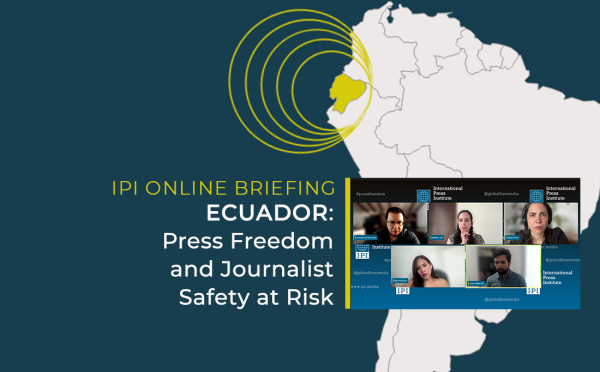The International Press Institute today expressed serious concern over Friday’s passage of the Law on Communications by the Ecuadorian National Assembly.
Among its most alarming provisions, is the creation of a regulatory council with excessive authority which, given the law’s vague provisions, IPI believes could be used by the administration of President Rafael Correa to further target journalists. The Law on Communications also seeks to regulate the media by creating a code of ethics by which media outlets would be required to abide, and violations of which would be determined by the council.
IPI Deputy Director Anthony Mills said: “The level of control that the Law on Communications grants the regulatory council is unacceptable. Recent history shows that Ecuadorian officials already do not shy away from using all available legal means to stifle dissent and critics. This council will only make it easier for them.”
IPI is also concerned about possible changes President Correa can still make to the bill once it reaches his desk. Using his constitutional powers as co-legislator, Correa has shown no unwillingness to further sharpen legislation affecting the media, as was the case, for example, with the 2012 reforms to the country’s electoral law. On that occasion, the president inserted a clause forbidding the media from “promoting, directly or indirectly” any particular candidate.
“We urge President Correa not only to abstain from changing the Law on Communications in a manner that further restrains journalists, but also to reconsider the bill altogether. As it stands, the new law could have grave repercussions on press freedom, and consequently, on democracy,” said Mills.
Later this month, IPI will release a report analyzing several problematic provisions within the Law on Communications, as well as detailing numerous incidents that have occurred in recent months, both of which indicate that Ecuadorian journalists continue to face a hostile environment.


